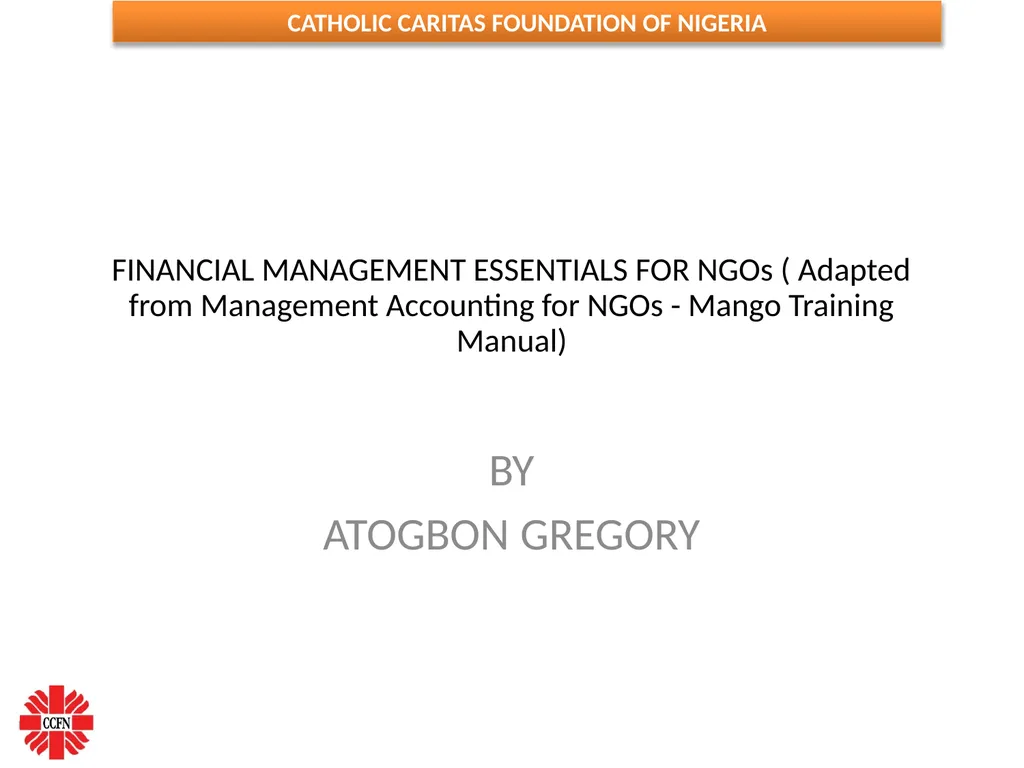
Author : briana-ranney | Published Date : 2025-06-23
Description: FINANCIAL MANAGEMENT ESSENTIALS FOR NGOs ( Adapted from Management Accounting for NGOs - Mango Training Manual) BY ATOGBON GREGORY Our goal in the NGO sector is to provide development assistance to help people help themselves. NGOsDownload Presentation The PPT/PDF document "" is the property of its rightful owner. Permission is granted to download and print the materials on this website for personal, non-commercial use only, and to display it on your personal computer provided you do not modify the materials and that you retain all copyright notices contained in the materials. By downloading content from our website, you accept the terms of this agreement.
Here is the link to download the presentation.
"FINANCIAL MANAGEMENT ESSENTIALS FOR NGOs ( Adapted"The content belongs to its owner. You may download and print it for personal use, without modification, and keep all copyright notices. By downloading, you agree to these terms.













